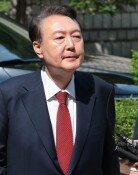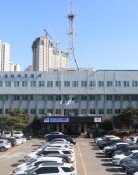Governments Prices Policy without Policy
Governments Prices Policy without Policy
Posted March. 11, 2004 22:53,
Despite prices sharply increasing since the beginning of the year, the governmental policy is lagging. Not only is the reaction slow, but also the discord between the different ministries is leading the policy-making nowhere.
Kim Kwang-lim, vice minister of Finance and Economy, announced the governmental prices policy on March 11 at the vice minister level meeting at the Gwachon Government Complex.
The government will freeze public prices that can be decided by the central government to stabilize this years consumer prices at the three percent level and also request local governments to freeze the public prices.
Additionally, they will reduce the drug prices supported by health insurance and also lower the mobile phone service charge.
Also, to relieve the raw material shortage, the government will supervise the steel reinforcing and scrap iron market starting March 12 to prohibit cornering and hoarding practices. It will also import three tons of steel reinforcements from Japan. The government additionally plans to release the governmental stocks of pepper, garlic, and onion to counteract the price hike of agricultural products because of heavy snow while reviewing the market situation.
However, only the power rate showed a slight reduction among all the public prices as the gas rate and expressway toll charge have already increased by 1.4 percent and 4.5 percent respectively earlier this year, which degrades the effectiveness of the governmental policies announced today.
Local governments is not likely to accept the governmental request since they have planned to raise public prices, including water supply and sewage charges and bus, taxi, and subway fares since late last year.
Also, the government is in dispute with the Information and Communications Ministry since the Ministry continually sticks to their stance of no reduction on the mobile phone service charge. The import of steel reinforcements is not likely to relieve the shortage since the import planned by the government only meets 0.26 percent of the total demand of the national construction companies of 11.2 million ton.
It is difficult to control the prices since the cooperation from the ministries are lacking, said an official at the Finance and Economy Ministry. The prices are at stake considering that the producer price increase of the second quarter (April to June), which recorded the highest in five years and three months, will pass on to the consumer price.
Ki-Jeong Ko koh@donga.com




![삼겹살 식당에서 소주 ‘짠’… 한국 아니라 필리핀이라고?[동아리]](https://dimg.donga.com/c/138/175/90/1/wps/NEWS/IMAGE/2025/05/26/131685388.2.jpg)


